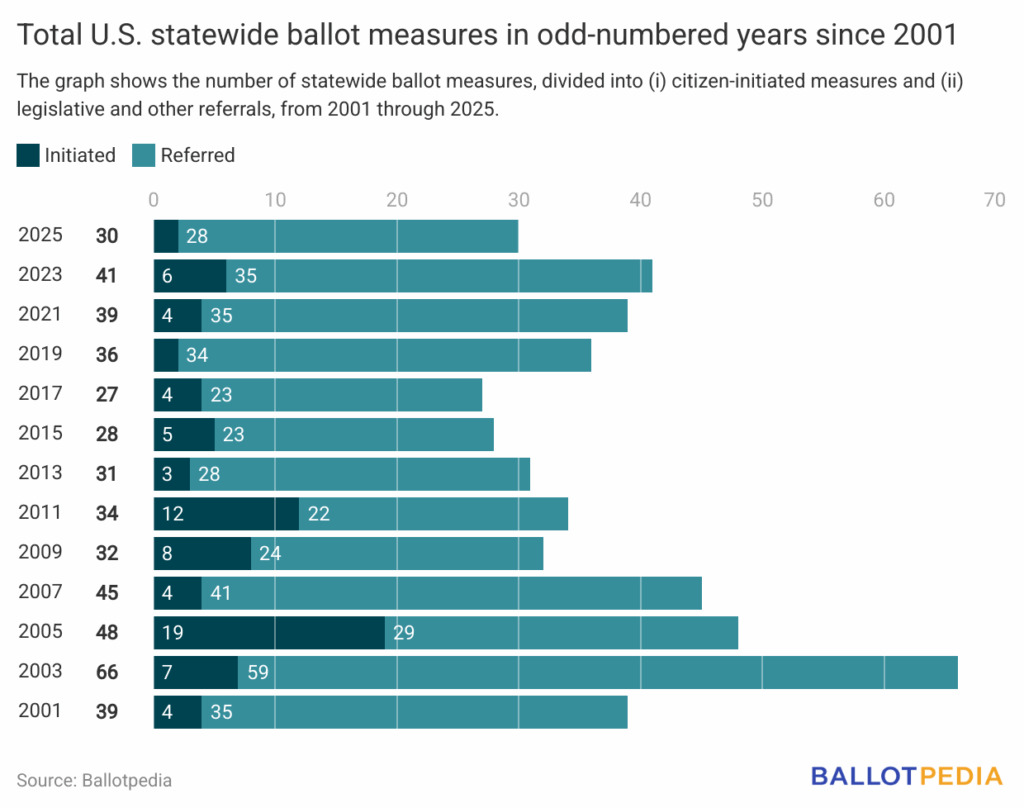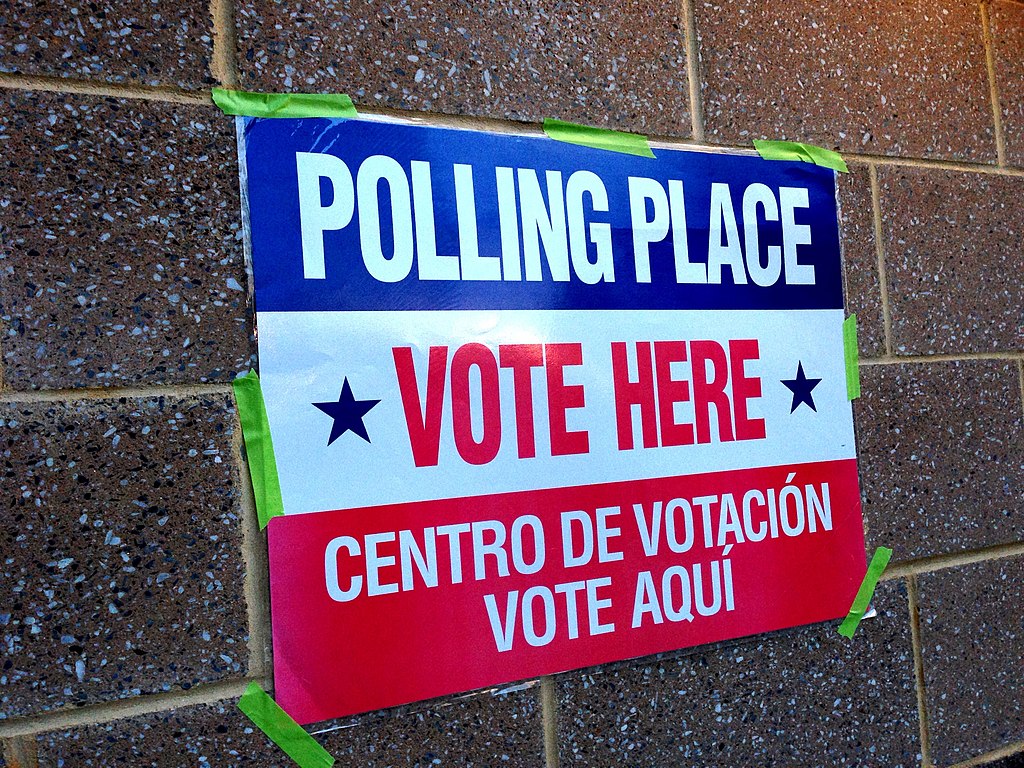On Nov. 4, voters in six states—California, Colorado, Maine, New York, Texas, and Washington—will be deciding on 24 statewide ballot measures.
Overall, 30 statewide ballot measures are certified for the ballot in nine states in 2025. Earlier in 2025, voters in three states—Louisiana, Ohio, and Wisconsin—decided on six ballot measures. Two were approved, and four were defeated.
For 2025, all but two measures were placed on statewide ballots by state legislatures. The two citizen initiatives will be featured on Maine’s ballots. The average number of citizen initiatives featured on statewide ballots between 2011 and 2023 was five, as compared with an average of 28 referred ballot measures during the same period. The last time just two were on the ballot was in 2019.

Ballot measures that address election policy will be on the ballot in California, Maine, and Texas. California Proposition 50 would allow the state to use a new congressional district map drawn by the state legislature for elections from 2026 to 2030. The proposed map would replace the existing maps, which the 14-member Citizens Redistricting Commission (CRC) adopted in Dec. 2021. Under Proposition 50, five Republican-held districts would shift to become more Democratic, based on the 2024 presidential election results. Proposition 50 is the most expensive measure this cycle and the seventh most expensive in the state’s history with campaigns raising $139.9 million as of the last campaign finance deadline on Oct. 13.
Maine voters will be deciding on a citizen initiative that would require voters to present photo ID for in-person and absentee voting; limit the number of election drop boxes in a municipality to one; require a bipartisan team of election officials to collect ballots from drop boxes; and eliminate the option for disabled and senior voters to request an absentee ballot automatically for each election without a separate request, among other changes. Currently, voters are required to present photo ID to vote in person in 24 states.
In Texas, voters will decide on Proposition 16, which would provide that "persons who are not citizens of the United States" cannot vote in Texas. While state law requires that residents must attest to being a citizen when registering to vote, Proposition 16 would amend the Texas Constitution, meaning future changes would be subject to a two-thirds legislative vote and voter approval. Currently, no state constitution explicitly allows for noncitizen voting in state or local elections, while 17 states explicitly prohibit it.
Texas voters will be deciding on the greatest number of ballot measures this year with 17 constitutional amendments on the ballot on Nov. 4. The other amendments address property tax exemptions for homesteads and personal tangible property; restricted-use funds for state education, dementia research, and water projects; bans on taxes of capital gains, estate and inheritances, and certain securities transactions; denial of bail for individuals accused of certain violent or sexual offenses; and parental rights concerning their children.
The other citizen initiative in Maine would establish a process for obtaining an Extreme Risk Protection Order (ERPO), allowing family members, household members, or law enforcement to petition a court to restrict a person’s access to dangerous weapons, defined in state law to include firearms, if the court determines the person poses a significant danger of causing physical injury. Currently, 21 states have enacted laws authorizing courts to issue extreme risk protection orders, and six states have enacted laws that prevent or restrict the adoption of extreme risk protection orders.
Colorado voters will be deciding on two legislatively referred state statutes. Proposition LL would allow the state to keep $12.4 million in excess revenue and interest from reduced state income tax deductions under Proposition FF (2022) to provide funding for the Healthy School Meals for All Program. Proposition MM would reduce state income tax deductions for taxpayers earning $300,000 or more to generate additional revenue for the Healthy School Meals for All Program and, once the program is funded with reserves, for SNAP.
New York voters will decide on a constitutional amendment placed on the ballot by the state legislature that would authorize the state to use 323 acres of the Mount Van Hoevenberg complex for winter sports facilities and infrastructure, and preserving at least 2,500 acres of forest land in the forest preserve in the Adirondack Park.
Washington voters will decide on a legislatively referred measure to allow the state’s Long-Term Services and Supports (LTSS) Trust Fund to be invested in stocks. A similar measure was on the ballot in 2020, but it was defeated with 54% opposing it.
Additional reading:



